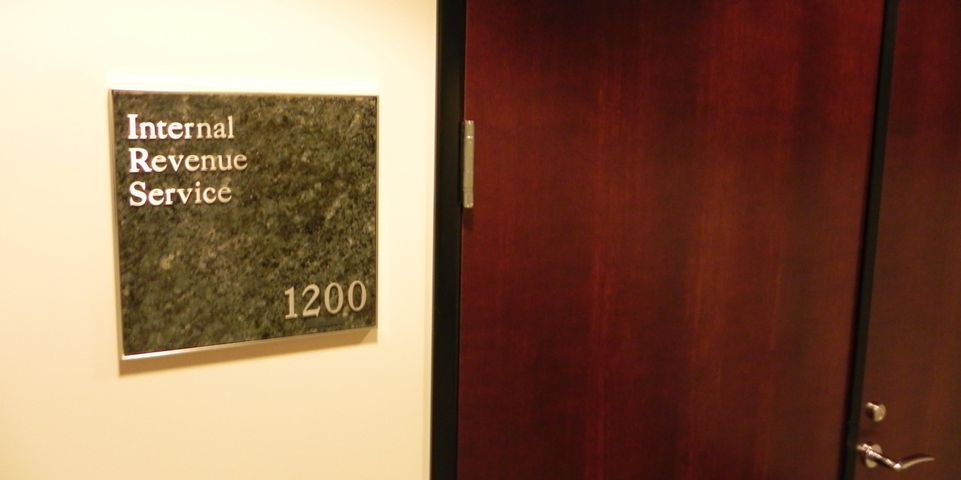
In a case of first impression, the Third Circuit held that an individual's late Form 1040s, filed after the IRS assessed deficiencies, were not an honest and reasonable effort to comply with the tax law and therefore did not constitute returns. The tax debts were for tax liabilities for which no return was filed, so they were not dischargeable in bankruptcy. Giacchi v. IRS, 2017 PTC 215(3d Cir. 2017).
See 16,160 Parker Publishing
Discharge of Taxes in Bankruptcy
Under Bankruptcy Code Section 727, individuals may be relieved of their debts in order to gain a "fresh start." That provision lists exceptions to the general rule where a debtor has:
(1) with intent to hinder, delay, or defraud a creditor or an officer of the estate charged with custody of property under the Bankruptcy Code, has transferred, removed, destroyed, mutilated, or concealed, or has permitted to be transferred, removed, destroyed, mutilated, or concealed (i) property of the debtor, within one year before the date of the filing of the petition; or (ii) property of the estate, after the date of the filing of the bankruptcy petition;
(2) concealed, destroyed, mutilated, falsified, or failed to keep or preserve any recorded information, including books, documents, records, and papers, from which the debtor's financial condition or business transactions might be ascertained, unless such act or failure to act was justified under all of the circumstances of the case;
(3) knowingly and fraudulently, in or in connection with the case (i) made a false oath or account; (ii) presented or used a false claim; (iii) gave, offered, received, or attempted to obtain money, property, or advantage, or a promise of money, property, or advantage, for acting or forbearing to act; or (iv) withheld from an officer of the bankruptcy estate entitled to possession any recorded information, including books, documents, records, and papers, relating to the debtor's property or financial affairs;
(4) has failed to explain satisfactorily, before determination of denial of discharge, any loss of assets or deficiency of assets to meet the debtor's liabilities;
(5) has refused, in the case (i) to obey any lawful order of the court, other than an order to respond to a material question or to testify; (ii) on the ground of privilege against self-incrimination, to respond to a material question approved by the court or to testify, after the debtor has been granted immunity with respect to the matter concerning which such privilege was invoked; or (iii) on a ground other than the properly invoked privilege against self-incrimination, to respond to a material question approved by the court or to testify;
(6) has committed any act specified in (1) through (5), above, on or within one year before the date of the filing of the bankruptcy petition, or during the case, in connection with another case, concerning an insider;
(7) has been granted a discharge in a case beginning within eight years before the date of the filing of the bankruptcy petition;
(8) has been granted a discharge under Section 1228 or 1328 of the Bankruptcy Code, or under Section 660 or 661 of the Bankruptcy Act, in a case begun within six years before the date of the filing of the petition, unless payments under the plan in such case totaled at least (i) 100 percent of the allowed unsecured claims in such case; or (ii) 70 percent of such claims and the plan was proposed by the debtor in good faith, and was the debtor's best effort;
(9) provides a written waiver of discharge, approved by the court, and executed by the debtor after the order for relief under chapter 7 of the Bankruptcy Code;
(10) after filing the petition, failed to complete an instructional course concerning personal financial management described in Section 111 of the Bankruptcy Code, except that this does not apply with respect to a debtor who is a person described in Bankruptcy Code Section 109(h)(4) or who resides in a district for which the U.S. trustee (or the bankruptcy administrator, if any) determines that the approved instructional courses are not adequate to service the additional individuals who would otherwise be required to complete such instructional courses under this provision (The United States trustee (or the bankruptcy administrator, if any) who makes such a determination must review such determination not later than one year after the date of such determination, and not less frequently than annually thereafter.) (11 U.S.C. Section 727(a)(1)-(11)).
Finally, a debt may be excepted from discharge where the court, after notice and a hearing held not more than 10 days before the date of the entry of the order granting the discharge finds that there is reasonable cause to believe that:
(1) Bankruptcy Code Section 522(q)(1) may be applicable to the debtor; and
(2) there is pending any proceeding in which the debtor may be found guilty of a felony of the kind described in Bankrupcy Code Section 522(q)(1)(A) or liable for a debt of the kind described in Bankruptcy Code Section 522(q)(1)(B) (11 U.S.C. Section 727(a)(12)).
Where a debtor's debts are not excepted from discharge under the above rules, there is still another hurdle to overcome with respect to tax debts. A debtor's tax debts may be excepted from discharge in bankruptcy under Bankruptcy Code Section 523. Under that provision, the following taxes are excepted from discharge:
(1) a tax of the kind and for the periods specified in Bankruptcy Code Section 507(a)(2) or Section 507(a)(8), whether or not a claim for such tax was filed or allowed;
(2) taxes with respect to which a return, or equivalent report or notice, if required, (i) was not filed or given; or (ii) was filed or given after the date on which such return, report, or notice was last due, under applicable law or under any extension, and after two years before the date of the filing of the petition; or
(3) taxes with respect to which the debtor made a fraudulent return or willfully attempted in any manner to evade or defeat such tax.
A precise statutory definition of the term "return" does not exist in either the Bankruptcy Code or the Internal Revenue Code. Prior to the enactment in 2005 of the Bankruptcy Abuse Prevention and Consumer Protection Act of 2005 (BAPCPA), which amended Bankruptcy Code Section 523, there were a number of court cases in which the meaning of that term was decided. For example, relying on the definition of "return" established by the Supreme Court in Germantown Trust Co. v. Comm'r, 309 U.S. 304 (1940), and Zellerbach Paper Co. v. Helvering, 293 U.S. 172 (1934), the Ninth Circuit, Sixth Circuit, and Tax Court concluded that whether a document is considered a "return" for statute of limitations purposes depended on four elements: first, there must be sufficient data to calculate tax liability; second, the document must purport to be a return; third, there must be an honest and reasonable attempt to satisfy the requirements of the tax law; and fourth, the taxpayer must execute the return under penalties of perjury (In re Hatton, 220 F.3d 1057(9th Cir. 2000); Beard v. Comm'r, 82 T.C. 766 (1984), aff'd, 793 F.2d 139 (6th Cir. 1986)).
Subsequently, BAPCPA added to the Bankruptcy Code some guidance on the meaning of the term "return." While not offering a precise definition, BAPCPA added an unnumbered paragraph at the end of 11 U.S.C. Sections 523(a)(1) through 523(a)(19). The unnumbered paragraph (frequently termed the "hanging paragraph") states in part that the term "return" means a return that satisfies the requirements of applicable nonbankruptcy law (including applicable filing requirements). Thus, the hanging paragraph codified, in part, what the Ninth Circuit had stated in In re Hatton, 220 F.3d 1057 (9th Cir. 2000) - i.e., that the definition of "return" for purposes of bankruptcy law should be one that satisfies the requirements of non-bankruptcy law; in other words, the definition of "return" used under the Tax Code.
Questions have arisen as to whether a return prepared by the IRS because a taxpayer never filed a voluntary, self-assessment tax return, qualifies as a "return" for purposes of a tax debt being discharged in bankruptcy. In reversing a bankruptcy court which had held that the tax reported on such a return qualified for dischargeability, a district court held that a debtor's tax liabilities were nondischargeable in bankruptcy because the debtor's late-filed IRS-prepared Form 1040 did not represent an honest and reasonable attempt to satisfy tax law requirements. Thus, where a debtor's return is prepared by the IRS, the debtor is not considered to have filed a "return" within the meaning of 11 U.S.C. Section 523(a)(1)(B)(i). Agreeing with other circuits, the Ninth Circuit, in In re Smith, 2016 PTC 249 (9th Cir. 2016), cert denied, No. 16-497 (S. Ct. 2017)), upheld the district court's decision and concluded that its analysis in Hatton, which adopted the Tax Court's widely-accepted definition of "return," applied to the Bankruptcy Code as amended in 2005.
Observation: In Smith, the district court noted that three of the four elements for deciding if a document is a "return" are based on objective, face-of-the-documents considerations. However, the "honest and reasonable attempt" element, the court stated, involves an individualized review of the circumstances.
Questions have also arisen as to whether a late-filed return by the taxpayer, after the IRS has already prepared a substitute for return (SFR) for the taxpayer, can qualify as a "return" such that the tax liability shown on that return can be discharged in bankruptcy. Several circuits have interpreted the requirement in the hanging paragraph that to be considered a "return" the return must meet "applicable filing requirements" which includes filing deadlines. In those jurisdictions, late filings therefore cannot be returns (In re Fahey, 779 F.3d 1 (1st Cir. 2015); In re Mallo, 774 F.3d 1313 (10th Cir. 2014), cert. denied sub nom. Mallo v. I.R.S., 135 S. Ct. 2889 (2015); In re McCoy, 666 F.3d 924 (5th Cir. 2012)). In Giacchi v. Comm'r, 2017 PTC 215 (3d Cir. 2017), the Third Circuit cited the Tax Court's decision in Beard v. Comm'r, 82 T.C. 766 (1984), aff'd, 793 F.2d 139 (6th Cir. 1986), in holding that a taxpayer's late-filed returns were not an honest and reasonable attempt to comply with the law and thus did not qualify as a "return." The court reasoned that the purpose of a tax return is to provide information to the government regarding the amount of tax due. When a taxpayer fails to file a return, the IRS must independently determine the tax liability; a return filed after the IRS has done so, the court said, can no longer serve the purpose of a tax return and thus cannot be an honest and reasonable attempt to comply with the tax law.
A discharge under Bankruptcy Code Section 727 does not protect the debtor's assets if those assets were subject to a federal tax lien that was properly filed before the bankruptcy petition was filed. In such cases, a federal tax lien attaches to the debtor's property and is not extinguished by a subsequent bankruptcy discharge (11 U.S.C. Section 522(c)(2)(B); Johnson v. Home State Bank, 501 U.S. 78 (1991); Iannone v. Comm'r, 122 T.C. 287 (2004)). On the other hand, a prepetition lien does not attach to property acquired by the debtor after a bankruptcy petition is filed (U.S. v. McGugin (In re Braund), 423 F.2d 718 (9th Cir. 1970)).
About the Business
Have a question? Ask the experts!
Send your question

